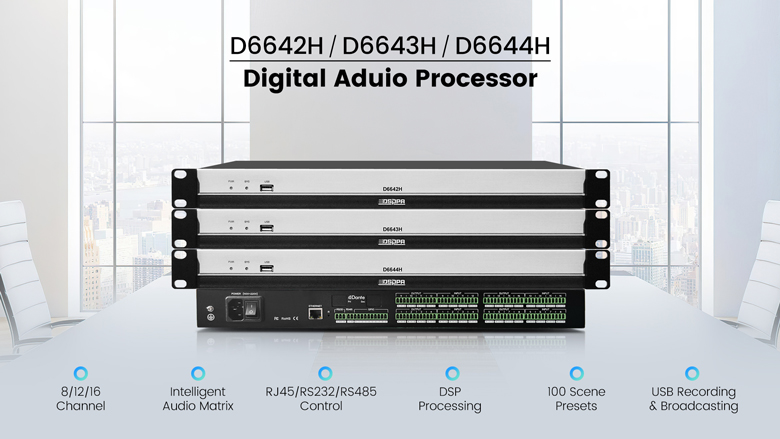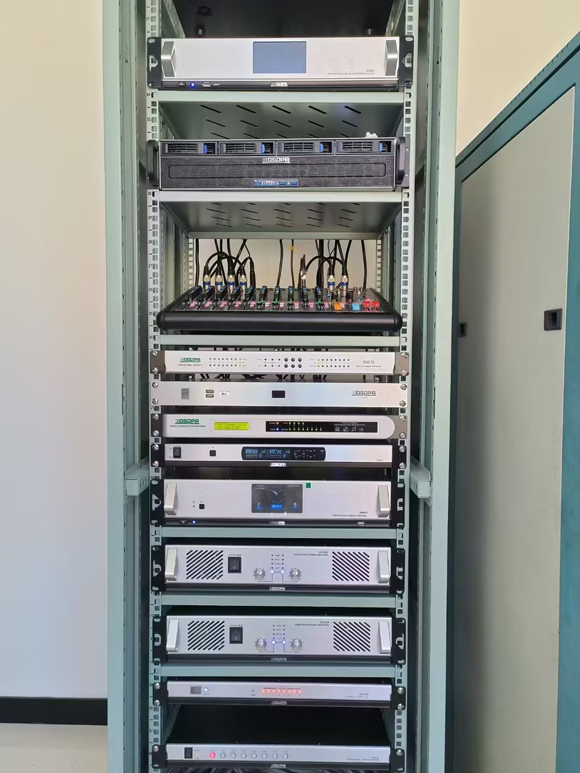
Explore the key differences between digital audio processors and digital mixing consoles, and understand how they cater to professional audio processing needs, so we can discover the best audio equipment for conference systems, music performances, and recording studios.
In the field of professional audio processing, digital audio processors and digital mixing consoles play a core role. Digital audio processors, as versatile tools for audio processing, excel at digitizing analog signals and improving audio quality through DSP technology, matrix mixing, noise reduction, echo cancellation, and feedback suppression. These features make them ideal for conference systems, studios, and command centers, providing clear audio quality and robust adaptability.
Digital mixing consoles, on the other hand, focus on the creative processing of audio signals, commonly used in music performances and recording studios. They achieve artistic sound processing through independent control of each channel and a wealth of plugins, creating professional-grade audio effects.

The widespread application of digital audio processors is due to their powerful processing capabilities and flexible signal switching functions. In conference systems, they can easily achieve clear transmission of the speaker's voice; in studios, they can precisely select audio sources, bringing a rich auditory experience to the audience.
Digital mixing consoles excel in fine-tuning audio effects in music performances and recording studios. Sound engineers can make real-time adjustments and mix audio signals through the hardware control elements on the mixing consoles, creating mesmerizing sound effects.
The interface of digital audio processors is typically computer-based, providing a visual user interface with elements like faders, knobs, and buttons, making operation intuitive and easy to grasp. This design improves work efficiency and lowers the operational threshold.
Digital mixing consoles are known for their rich hardware control elements. Though their operation method is more traditional, it can be somewhat cumbersome in certain complex scenarios.

With its outstanding performance and wide application prospects, digital audio processors have become indispensable core equipment in high-end applications such as conference systems and studios. DSPPA provides advanced and convenient audio processing solutions, supporting multiple audio formats for input and output, with a wealth of built-in DSP modules and advanced processing algorithms, easily handling various complex audio processing needs.
In conclusion, in the pursuit of efficient, convenient, and high-quality audio processing, digital audio processors have shown more prominent advantages. If you are looking for a device that can lead the new trend in audio processing, DSPPA digital audio processors will be your best choice!